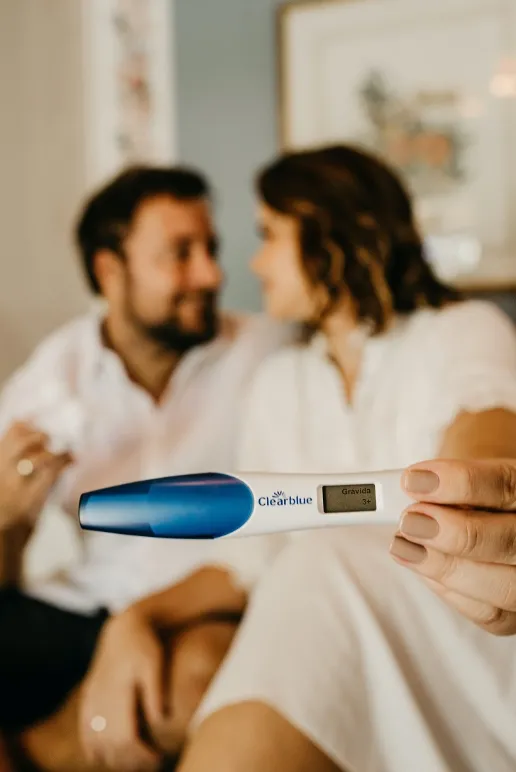An initial confirmation of pregnancy is often provided by the pregnancy tests available at the pharmacy. However, the timing of the pregnancy test has a great influence on the reliability of the result. For this reason, do not perform the test too early to avoid a false negative result. Find out when you should take a pregnancy test at the pharmacy and when you can take a blood test at the earliest, so that the result is reliable.
When should you take a pregnancy test at the pharmacy?
Pregnancy tests available at any pharmacy detect the beta subunit of the hormone chorionic gonadotropin (beta-hCG) in urine. This hormone is produced during pregnancy by the cells of the syncytiotrophoblast as early as the 2nd week of pregnancy. Beta-HCG appears later in the urine than in the woman’s blood, so it is best to perform a pregnancy test at the pharmacy on the day of expected menstruation, which is about 14 days after ovulation. A test done earlier may give a false negative result. However, if it shows 2 lines, it is advisable to schedule a proper pregnancy checkup with a gynecologist, around the 7th week of pregnancy. If the concentration of the beta subunit of chorionic gonadotropin in the blood is about 1,000 mlu/ml, a pregnancy follicle should already be visible. If the beta HCG level is above 10,000, the doctor can usually visualize the baby’s heart function on ultrasound.
When should you have a blood test for pregnancy?
Blood pregnancy tests can be performed earlier than pharmacy tests because they are performed around the 8th to 10th day after conception, before the date of expected menstruation. Unlike pharmacy tests, a blood pregnancy test shows the exact concentration of beta-HCG in the woman’s body. Based on this, it is possible to determine whether the increase in concentration is normal. An abnormal rise or fall in the hormone level may indicate a diagnosis of ectopic pregnancy or miscarriage. However, the result of the test should be interpreted by the doctor.
Pregnancy test and ectopic pregnancy
Sometimes, despite a positive pregnancy test, a pregnancy does not develop properly. This is the case when the embryo implants outside the uterine cavity. In this situation, the pregnancy test shows two lines, but further development of a normal pregnancy is not possible. In such a situation, pharmacological induction of miscarriage and in some cases surgical treatment is required. Therefore, the presence of pregnancy in the uterine cavity should always be confirmed by a gynecologist.
Implantation of the embryo – when is the pregnancy test?
Implantation of the embryo occurs about day 6-7 after fertilization. However, it lasts for several days. It is believed that complete implantation of the blastocyst occurs between day 11 and 12. After implantation, the concentration of chorionic gonadotropin increases rapidly. For this reason, a pregnancy test can already be performed at this time if you are trying to have a baby. During the first weeks of pregnancy, the concentration of beta-hCG in a woman’s blood doubles about every 48 hours. Based on the results from the blood, the age of pregnancy can be estimated. However, the date of delivery is determined exclusively on the basis of the date of the last menstrual period and can be changed after the measurement of the length of the vertex in the first trimester ultrasound.










